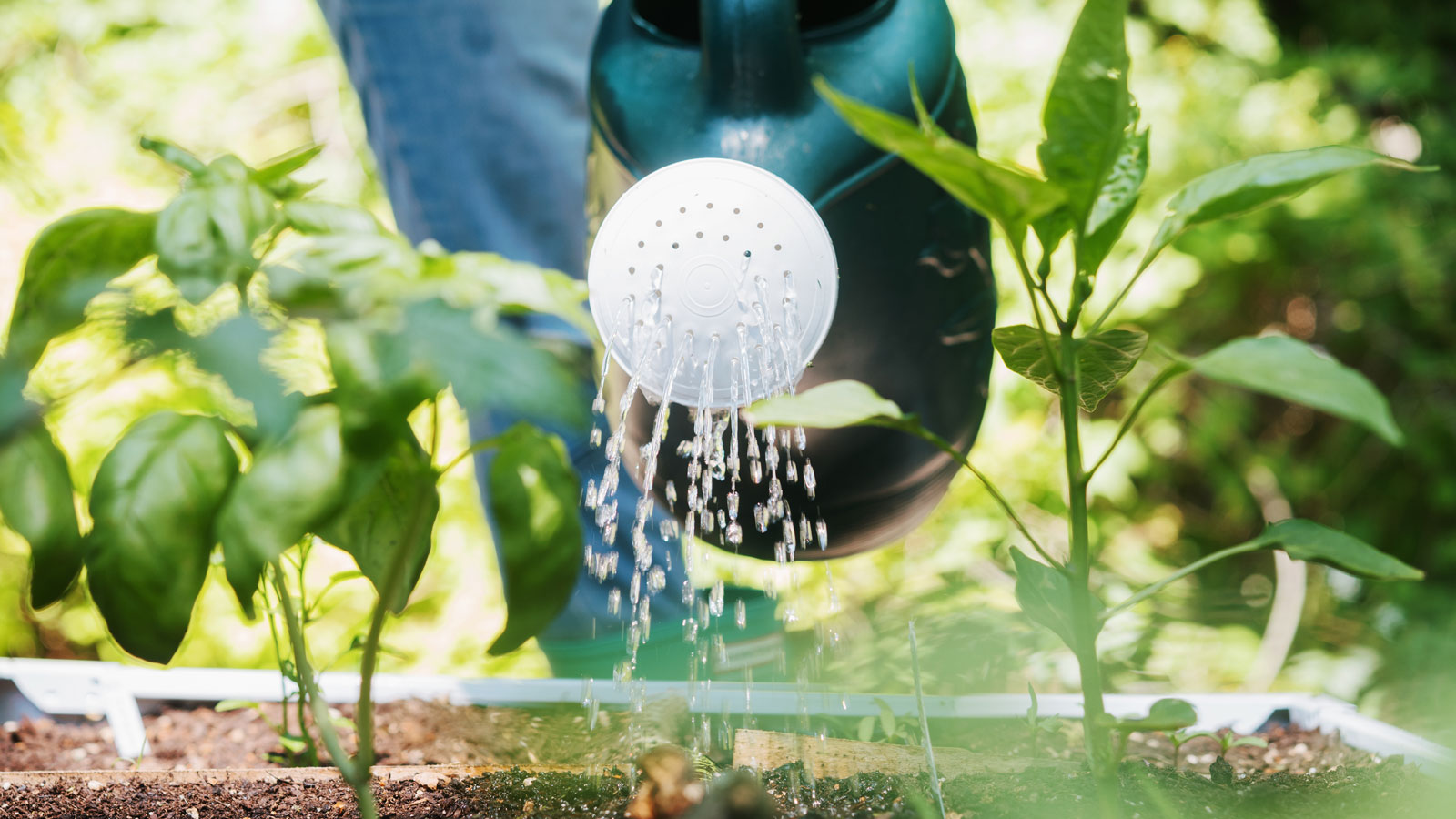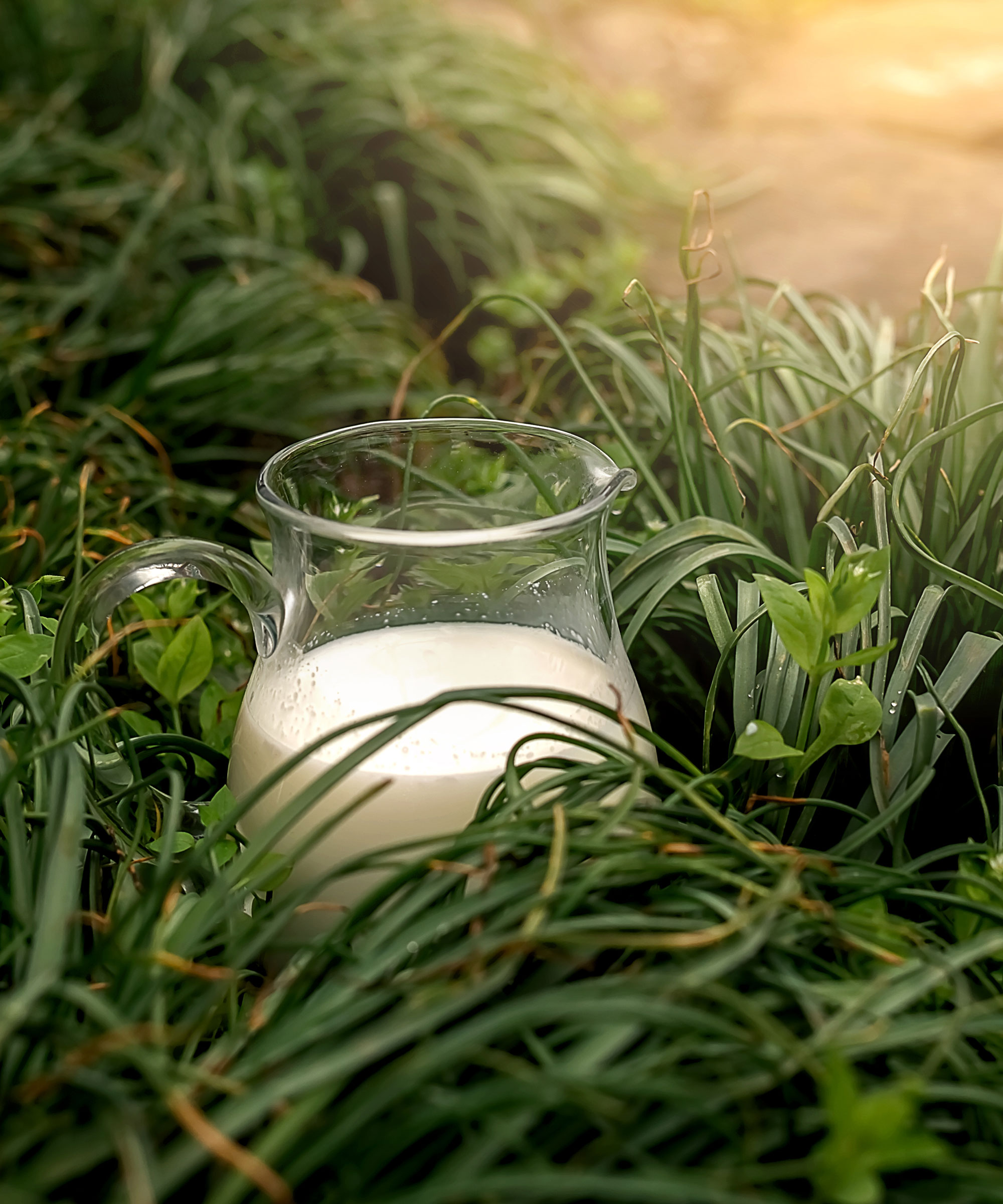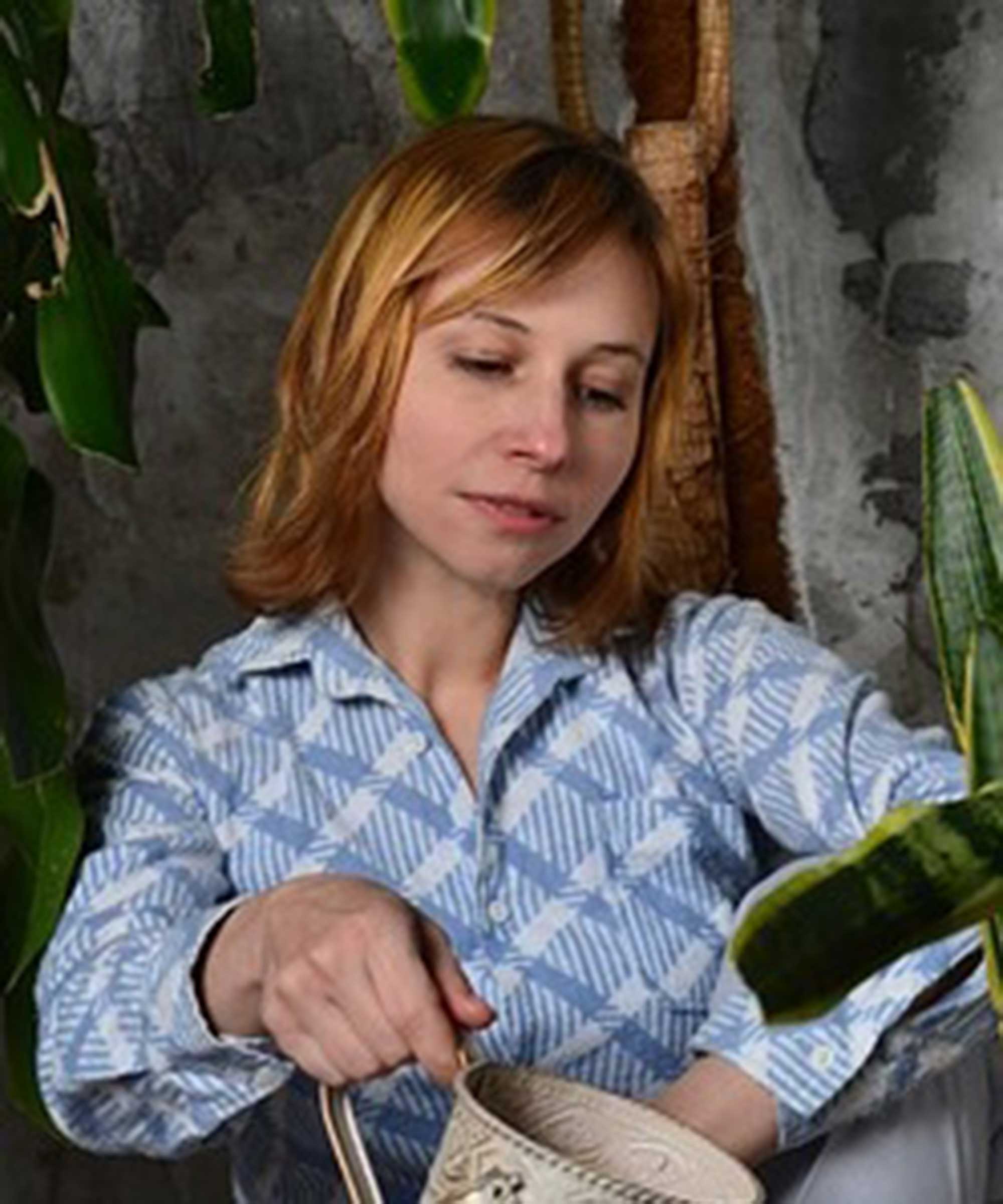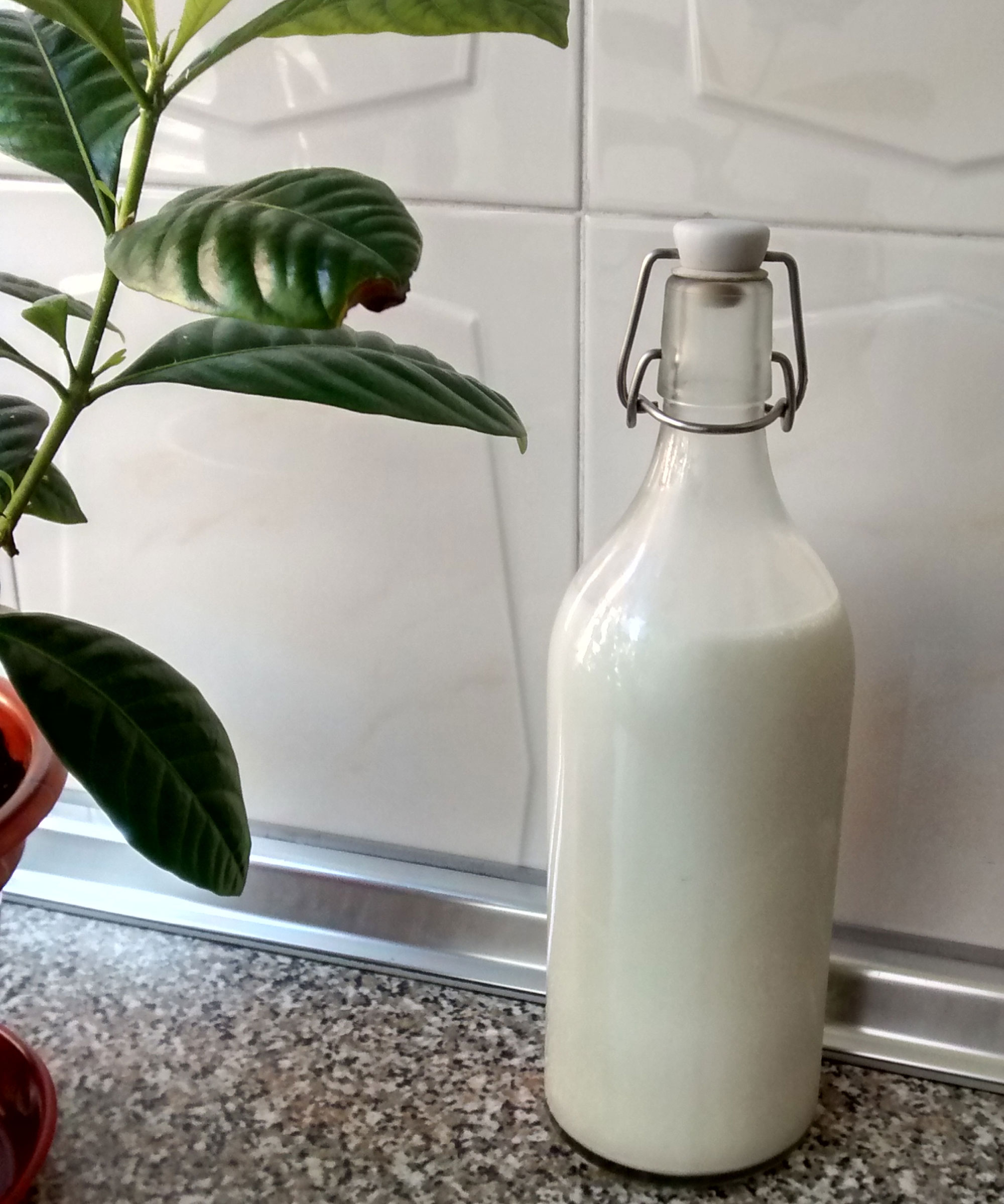Can you water plants with milk? Experts reveal the pros and cons of using it to hydrate plants
There's a lot being said about watering plants with milk so we asked our team of experts to set the record straight


Watering plants with milk is a practice that has gained a lot of attention recently. It's an unconventional idea, so you may want to consider all the potential benefits and drawbacks before deciding whether or not to incorporate this method into your own gardening watering routine.
You might be thinking what harm can it possibly do to try it? After all, milk is a nutrient-packed liquid so surely it's fine to water your plants with it. But it's important to remember also that milk is an organic substance that is prone to going off, at which point it can also smell bad and lead to the growth of bacteria. Surely that cannot be good for a plant's health and growth either.
To solve the dilemma of whether or not it's a good idea to add milk when you're watering plants, we put the question to our experts and this is what they had to say.

If you're keen to try out watering your plants with milk stick with reduced-fat (2 per cent) or low-fat (1 per cent) milk, rather than skim or whole options
Pros of watering plants with milk
- Milk contains some components that can potentially benefit plants. Diluting milk with water and using it as a fertilizer may provide plants with an additional source of nutrients, encouraging plant growth and keeping the plant healthy and disease resistant. These nutrients include proteins, carbohydrates, and calcium. 'This means milk can be used as an alternative source of nutrients and plant food,' says Gabriel Keith, founder and expert gardener at Get Set Gardening.
- It's a source of important minerals too. 'Milk also contains essential nutrients like nitrogen, phosphorus, and potassium that are vital for the overall health and development of your plants,' says Diana Cox, plant expert and founder of The Gardening Talk. 'By occasionally incorporating milk into your watering routine, you provide plants with supplementary fertilization, thereby enhancing their growth.'
- Using milk as part of your watering routine can also improve the appearance of plants. 'The lactic acid and fat content present in milk act as effective agents in cleansing plant leaves and preventing accumulation of dust,' says Diana Cox. 'As a result, the leaves become lustrous, and moisture retention is improved.' A win-win situation for both plants and the garden aesthetic.
- Some experts believe there is a benefit to the soil health too. 'Additionally, the sugars in milk may encourage the growth of beneficial microbes in the soil,' says Zahid Adnan, gardening expert and founder of The Plant Bible.
- Milk acts as a natural insect repellent due to its odor, which insects generally find unpleasant. 'This characteristic makes milk watering an effective strategy for controlling pests like aphids and scale insects, particularly when it comes to indoor plants,' says Diana Cox.
- Milk has anti-fungal and antibacterial properties too, helping to prevent diseases in plants. It also works as a pesticide. For plant varieties that are generally prone to powdery mildew Homes & Gardens expert Anne Swithinbank says: 'A weekly spray of one part skimmed milk to 10 parts water helps to prevent the disease.'

Diana started her website The Gardening Talk as a way to help others who are new to the world of gardening and plant care. She has been growing plants since she was a little girl, and started to document her experience in gardening a few years ago.
Cons of watering plants with milk
- 'First, it's worth mentioning that using milk as a primary source of watering for plants is not a recommended practice,' says Gene Caballero, co-founder of GreenPal. 'Plants primarily require water, nutrients, and sunlight to thrive, and milk alone cannot provide the necessary balance of nutrients and hydration they need.'
- There are potential problems associated with using milk as a regular watering method and can lead to possible garden watering mistakes. 'One significant concern is the risk of attracting pests, particularly ants and flies,' says Robin Phelps, gardening and preserving coach for Sow Many Plants. 'The sugar content present in milk can attract these unwanted visitors, leading to potential infestations that may harm your plants.'
- If milk is not properly diluted or applied in excess, it can lead to the growth of harmful bacteria and fungi in the soil, potentially causing root rot or other diseases. 'Milk, being organic matter, can provide a suitable environment for harmful microorganisms to thrive,' explains Gene Caballero. 'This can lead to mold, rot, and other diseases that can negatively affect plant health.'
- Whether you are watering plants in containers or in the ground, another downside is the sour smell that can emanate from plant soil after you have watered with milk, but this should only be temporary. Some milk odors are stronger than others – it may be the fat that’s causing the smell, so try using reduced-fat milk.
- Milk can act as a fertilizer, but it it doesn’t build soil structure in the way that it would if you added manure as a means of improving your garden soil. And if you used milk to fertilize very large areas, it could work out way more expensive than using fertilizer.
- The jury is out on the powdery mildew debate. 'There is a common misconception about using milk to stop some plant pathogens on the leaves, specifically powdery mildew,' says Kevi Tara, owner of LeafNJoy plant nursery. 'I have personally tried milk for powdery mildew and unfortunately have had negative experiences with it.'

If you're considering watering plants with milk start by trying out a little diluted fat-reduced milk on one plant
Verdict
Milk is a very good source of nutrients for watering plants if used properly. However, you need to factor in some of the risks. 'While there may be some potential benefits to watering plants with milk due to its nutrient content, it's crucial to approach this practice with caution,' says Robin Phelps. 'I recommend considering milk as an occasional supplement rather than a regular watering method. Additionally, it is important to ensure proper dilution and avoid over application.
'Using organic fertilizers, compost, and balanced water and nutrient management techniques are generally more reliable and effective for maintaining healthy and thriving plants,' adds Robin.
If you'd like to give milk a go, however, try experimenting with one or two plants and see how it goes. 'To avoid any problems, I start slowly with new plants and dilute the milk in the ratio of 1:2 with water,' says Gabriel Keith. 'This makes sure that I'm not shocking the plants with new nutrients and giving them time to adjust.'
Remember too that it's a great use for leftover milk that is slightly sour, that might otherwise be thrown out. Or alternatively you could use it to make indoor plant leaves shiny.
Design expertise in your inbox – from inspiring decorating ideas and beautiful celebrity homes to practical gardening advice and shopping round-ups.

Lifestyle journalist Sarah Wilson writes about garden design and landscaping trends for Homes & Gardens. She has studied introductory garden and landscape design, and also has an RHS Level 2 qualification in the Principles of Plant Growth and Development. She is a regular contributor to Homes & Gardens and Livingetc. She has also written for Country Living, Country Homes & Interiors, and Modern Gardens magazines